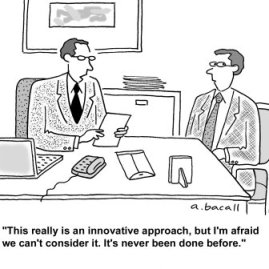 It’s but an interesting footnote for now, but with a great Summer vacation only just behind me I was reflecting on the work-focus part of the holiday. The first half on the vacation where every wifi hotspot needs your access to grab the emails, and all those todo things are bothering you to get in the way of relaxing and making the most of the break (until the glorious moment you decide to cycle sans tech and pickup that undroppable work of fiction of an evening). I’ll get my personal meditation on this exact subject elsewhere, but the train of thought lead me to realize that the understanding and deciding to let go of a (more than a single day) cognitive task (the work stuff) is typically very difficult. Except where undeniable tangible and physical barriers exist, choosing to stop is possibly much harder than choosing to start.
It’s but an interesting footnote for now, but with a great Summer vacation only just behind me I was reflecting on the work-focus part of the holiday. The first half on the vacation where every wifi hotspot needs your access to grab the emails, and all those todo things are bothering you to get in the way of relaxing and making the most of the break (until the glorious moment you decide to cycle sans tech and pickup that undroppable work of fiction of an evening). I’ll get my personal meditation on this exact subject elsewhere, but the train of thought lead me to realize that the understanding and deciding to let go of a (more than a single day) cognitive task (the work stuff) is typically very difficult. Except where undeniable tangible and physical barriers exist, choosing to stop is possibly much harder than choosing to start.
With so much good and hard work going into when to recommend purchases, behavioral changes, assistance, and a myriad of other human augmentations for the modern lifestyle, will computer based systems hit another barrier after they are “good enough” – when not to perform all these amazing tasks? Today it’s simple. The multiple psycho-technological domains haven’t converged so there’s a patchwork of apps, systems and thingy-mi-dos that don’t fit together and couldn’t possibly be executed persistently, pervasively and simultaneously (with today’s tech or thinking). So it’s a scarce resource problem: one app at a time – human, decide now! Possibly with some background logging for analytics of other apps when you single-task onto those. And when to stop? When the human says stop, or just ignores, or the power runs out.
 But learning to turn off seems like it’s going to be as critical as learning to turn on, but without the R&D budget of getting your attention and money. So for my prediction: stopping, attention-easing and letting go may be non-subjects for marketing and research headlines today, but in 5 years time we will understand that we could never have done without out them (and so will the democratized, scientific and daily presses).
But learning to turn off seems like it’s going to be as critical as learning to turn on, but without the R&D budget of getting your attention and money. So for my prediction: stopping, attention-easing and letting go may be non-subjects for marketing and research headlines today, but in 5 years time we will understand that we could never have done without out them (and so will the democratized, scientific and daily presses).
<However, it’ll be hundreds of years until most people don’t make predictions in January to be measured in some future December 🙂 >
